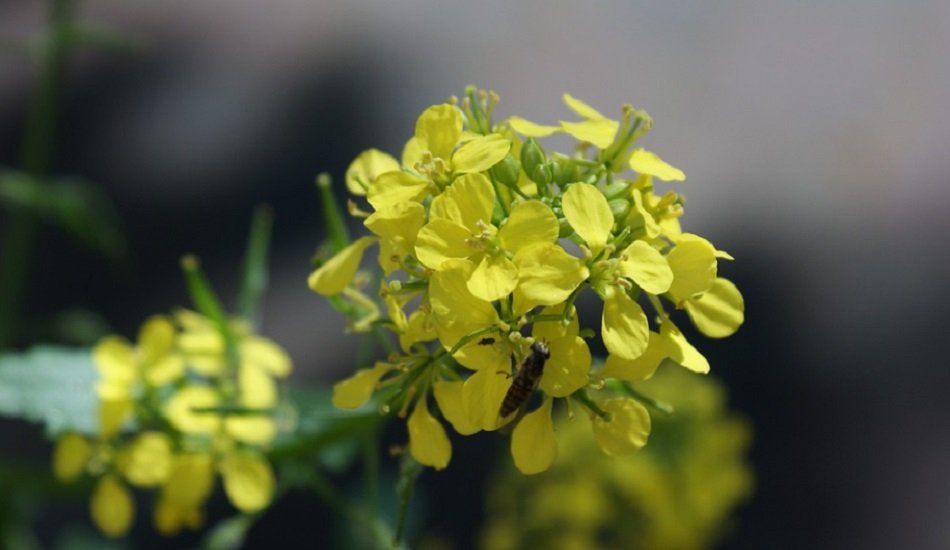Govt responds to activists’ claim of regulatory flaws in GM mustard approval
On Saturday, the Union Environment Ministry responded to claims by activists that legal rules were broken during the review and approval of GM mustard in India. The ministry said that the product was only conditionally approved after stakeholders were consulted.
The Coalition of GM-free India is a group of non-governmental organisations (NGOs) that are against genetically modified crops. On Friday, they put out a report saying that no (independent) health expert has ever been involved in GM mustard evaluation.
In a response released on Saturday, the Ministry said, ‘The Assessment of Food and Environmental Safety (AFES) report prepared by the sub-committee in 2016 with regard to the biosafety dossier of GM mustard was uploaded on the ministry’s website to invite comments from the public for a period of 30 days’ (from September 5 to October 5, 2016).
‘Further, the public could also look at the whole dossier in the ministry’s office for the same amount of time,’ it said. Related Agri New | Activists ‘GM-Free India’ claim regulatory flaws in approval of GM mustard
‘The conditional environmental release of GM mustard has been approved after consultations with stakeholders, as required by the 2016 Environmental Risk Assessment (ERA) guidance documents (Guidelines for the ERA of Genetically Engineered Plants, Risk Analysis Framework, Stakeholder’s guide). It said, ‘The conditional approval for environmental release is based on the Food Safety and Standards Authority of India’s approval.’
In response to the coalition’s claim that the seeds were sent to the Directorate of Rapeseed Mustard Research on October 22, 2012, before the formal approval was given on October 25, the ministry said that the release of GM mustard into the environment was recommended at the 147th meeting of the GEAC on October 18, 2012.
‘The central government gave permission for GM mustard to be released into the environment on October 25. On October 29, the seeds were sent to the ICAR-Directorate of Rapeseed Mustard Research (DRMR),’ it said.
The coalition also said that GM mustard was not tested as a herbicide-tolerant (HT) crop because there are no rules and protocols for HT crops.
The ministry said it is ‘not right’ to say that GM mustard that has been approved for release into the environment is ‘tolerant to herbicides.’
‘The herbicide-tolerant (HT) trait found in GM mustard is a selection marker for experimental use during the development phase, followed by use during the production of mustard hybrid seed to identify genetically modified (GM) plants,’ it said.
The ministry said that Biosafety Research Level-I and Biosafety Research Level-II trials of GM mustard were done after getting no-objection certificates from state governments. This was in response to the claim that the approval of GM mustard ignored the fact that agriculture is a state matter.
In response to the coalition’s claim that the GEAC ‘kept agreeing’ to ‘the applicant’s’ requests for an exemption from tests, the ministry said that ‘the applicant’ was told to do field demonstration studies of GM mustard in 2018 to get more information about honey bees and other pollinators.
It said that Prof. Deepak Pental, the person who made GM mustard, sent a letter in May 2022 saying that the GM technology used to make mustard had been tested and used for more than 20 years in Canada, the U.S., and Australia.
‘References showed that no bad effects of the technology on honey bees have been reported. The Department of Biotechnology (DBT) and the Department of Agriculture Research and Education (DARE) were asked what they thought about the letter from Prof. Pental. Both DBT and DARE thought that GEAC’s recommendation about releasing GM mustard into the environment might need to be rethought,’ the ministry said.
Related Agri New | GM mustard field trial shows safe for bees & higher crop yield: Minister
It said that the GEAC, at its 146th meeting on August 25, 2022, had set up an expert committee to look into the issue. That committee recommended that GM mustard be released into the environment and further studied by the Indian Council of Agricultural Research (ICAR). Honey bees would also be monitored after the mustard was released.
Based on what the expert committee said, the GEAC said that GM mustard should be released into the environment.
‘The field demonstration studies on the effects of GE mustard on honey bees and other pollinators, as recommended in the 136th GEAC meeting, shall also be done after the environmental release, concurrently by the applicant, within two years under the supervision of ICAR, as per ICAR guidelines and other rules/guidelines/regulations that are already in place, and the report shall be submitted to ICAR.’
In October, the environment ministry gave permission for the Dhara Mustard Hybrid (DMH-11), which was created by Delhi University, to be released into the environment for seed production and testing before it went on sale. Cotton is the only GM crop that can be grown in India right now.
Before the tests could begin, the coalition went to the Supreme Court and asked for help stopping the tests. The next time this will be talked about is on January 10.
Activists and farmers say that GM mustard is a crop that can handle herbicides, and that spraying toxic chemicals on the plant would hurt the health of the people who eat it. They also say that it isn’t good for the environment and doesn’t work for farming in India.
Related Agri New | Stop release of GM mustard into environment, Doctors write to Prime Minister
In December, the government told Parliament that extensive studies on the toxicity, allergenicity, compositional analyses, field trials, and environmental safety of GM mustard lines compared to their non-transgenic counterparts showed that DMH-11 was safe for cultivation, food, and feed use.
It also said that farming technologies like GM crops are important to ensure food security and reduce reliance on imports and that there is no evidence that honey production in the country has gone down because of GM cotton.


















Add Comment